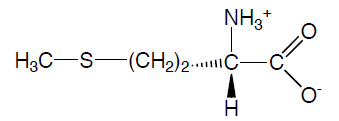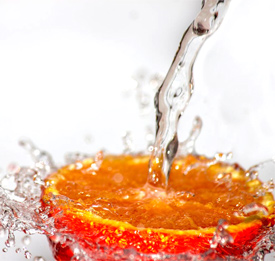Methionine Rich Foods and Should You Be Careful?

This post is about pointing out the benefits and downsides of Methionine, and what foods you should (or shouldn’t) be consuming to improve (or reduce) the levels of methionine in your body.
The research of longevity suggests that Methionine restriction can expand life span.
But one should be careful, as getting less methionine than optimal is also not the ideal health situation.
But first, let’s see why Methionine is useful.
Table of Contents
- 1 The Methionine Amino Acid and Its Benefits
- 2 Side Effects of Large Methionine Doses
- 3 Methionine in Foods
- 4 Methionine Rich Foods (Per 100 Grams)
- 5 Brazil Nuts
- 6 Parmesan Cheese
- 7 Soybeans
- 8 Eggs
- 9 Juicing for Methionine?
- 10 Q&A
- 11 Is Methionine Acidic or Alkaline?
- 12 Is Methionine an Essential Amino Acid?
- 13 Can You Buy Methionine?
- 14 Can You Take Too Much Methionine?
- 15 Conclusion
- 16 Related Posts
The Methionine Amino Acid and Its Benefits
 So, methionine is a type of amino acid. Amino acids are building block of the proteins in our body. They join together to produce proteins.
So, methionine is a type of amino acid. Amino acids are building block of the proteins in our body. They join together to produce proteins.
Methionine has to be ingested, as our body can’t produce it of itself, nor can it store it inside. It is essential for optimal health, and totally eliminating it from our diet can have adverse consequences in the long run. Our body uses it in protein synthesis, to form cartilage (for stronger joints, nails, and hair), as well as for proper cellular function.
Besides, methionine is one of the few amino acids that bring sulfur to our body. Cysteine, closely related to methionine, is another one. Sulfur is needed to sulfate many biological compounds and make them biologically active.
There are some indications that methionine may be useful to improve the symptoms of Parkinson’s disease, to help heal wounds, and in cases of liver disorders, depression, fertility, allergies, asthma, lupus, alcoholism, and radiation poisoning.
Methionine is important for detoxification. They way Methionine works is by providing sulfur, which is essential for the production of the master antioxidant of our body (liver) – glutathione.
When you have less methionine than optimal, glutathione synthesis is the first thing that suffers. This as a consequence has a lessened immune function of the body.
The above also translates into the fact that methionine will be more important if your body is stressed or under inflammation. In these cases the need for sulfur-containing amino acids, like methionine, is greater.
Last but not least, methionine seems to be important if you want to prevent graying of your hair. Low levels of methionine are related to senile hair graying. It appears that this situation is directly correlated with a buildup of H2O2 in the hair follicles and loss of hair color.
Side Effects of Large Methionine Doses
While essential for the body, methionine has some possible side effects and you should be careful if you are using it in excess:
- Acidosis: Methionine rich foods can increase the acidity of the blood.
- Schizophrenia: large doses of Methionine may lead to schizophrenia symptoms.
- Vitamin B deficiency: if you are vitamin B deficient high methionine intake may cause problems.
Methionine could be a great problem if taken in excess of the normal daily intake (5 times or more). The reason is that methionine is a precursor of homocysteine. High homocysteine levels, in turn, are associated with negative health outcomes.
But consuming low methionine levels is not a guarantee that you will have low homocysteine levels. For example, vegetarians often have higher levels of homocysteine because of their chronically low levels of vitamin B12.
Methionine in Foods
In general, animal foods, like meat, fish, or eggs, are rich in methionine. It can also be found in nuts and seeds. In contrast, foods low in methionine are beans, veggies, and fruits. As a consequence, when compared to meat-eaters, vegetarians and vegans consume very little methionine.
Methionine Rich Foods (Per 100 Grams)
Here is a list of foods with more than 50 percent of the recommended dietary allowance (RDA) of methionine per one hundred grams of produce. Note that the official RDA of Methionine (together with cysteine) is around 14 mg/kg of body weight.
Brazil Nuts
One of the richest food in methionine, the Brazil nuts contain more than 150 percent of the recommended dietary allowance (RDA). (Please note that consuming more than 1 or 2 Brazil nuts per day is not recommended.)
Parmesan Cheese
With more than 130 percent of RDA, this cheese is surprisingly rich in methionine. It has more than 4 times the amount of methionine than the next richest cheese on the list. So, choose parmesan if you want to boost your methionine levels.
Soybeans
Good source of protein, with high levels of Methionine, (more than 70% of RDA). If you are a vegetarian or vegan, soy can be one of the sources of this important amino acid. Not really recommended, though, as soy is not among the healthiest foods in the world.
Eggs
Eggs are great choice to boast your Methionine levels, with more than 50 percent of RDA.
Juicing for Methionine?
As methionine is not found in plant foods, it is difficult to prepare juices and smoothies rich in methionine.
 For example, fruits are really low in methionine. 100 grams of edible raw avocado is at the top of the list with 45 mg of methionine. The second place is reserved for raw kiwifruit with 19 mg. per 100 grams of fruits. As you can see, these are really low values to be considered as significant methionine sources.
For example, fruits are really low in methionine. 100 grams of edible raw avocado is at the top of the list with 45 mg of methionine. The second place is reserved for raw kiwifruit with 19 mg. per 100 grams of fruits. As you can see, these are really low values to be considered as significant methionine sources.
You may and should add one or two Brazil nuts to your smoothies (no more than that because otherwise you may get too much selenium!), other nuts rich in methionine (for example pistachio, cashew, butternuts), sesame, or otherwise you can add some egg-yolks to it. Yogurt is also a moderately good source of methionine.
Q&A
Is Methionine Acidic or Alkaline?
It is acidic. Like all amino acids (proteins), it leaves an acidic residue after digestion. Moreover it is a sulfur based compound, which also transfers into an acidic environment. By contrast, Calcium, Potassium, and Magnesium residues transfer to alkaline bodily environment.
Is Methionine an Essential Amino Acid?
Yes. There are 9 amino acids that are essential, in the sense that they cannot be synthesized in the body. Methionine is one of them.
Can You Buy Methionine?
Yes you can, but consult first with your physician. You can get it as methionine supplement, for example from Amazon.com. Much better option, though, is to take it from natural dietary sources.
Can You Take Too Much Methionine?
Yes you can, and it can be harmful, depending on the dosage. Check the discussion above.
Conclusion
Methionine is an amino acid with dual response: too little of it, or too much of it is not good for your health. This situation reminds of salt: too much salt is not healthy as everyone knows. But too little salt is equally life-threatening.
Moreover, different people have different needs for methionine. You have to find your optimal level.
In general, vegetarians and vegans have lower levels of methionine. Low levels mean having weaker immune system and being susceptible to cellular inflammation and infections. They may consider adding nuts and seeds to their diet to get some methionine, although some eggs and diary can also be a good choice if they are not strict vegans. We don’t really recommend getting it through soy products because soy is not that healthy in and of itself.
In any case, don’t go overboard with methionine. Find your optimal levels!
Photo 1 courtesy by Bioreg images

Leave a comment